Rixo founders Henrietta & Orlagh on their new SS22 collection, sustainability and launching denim

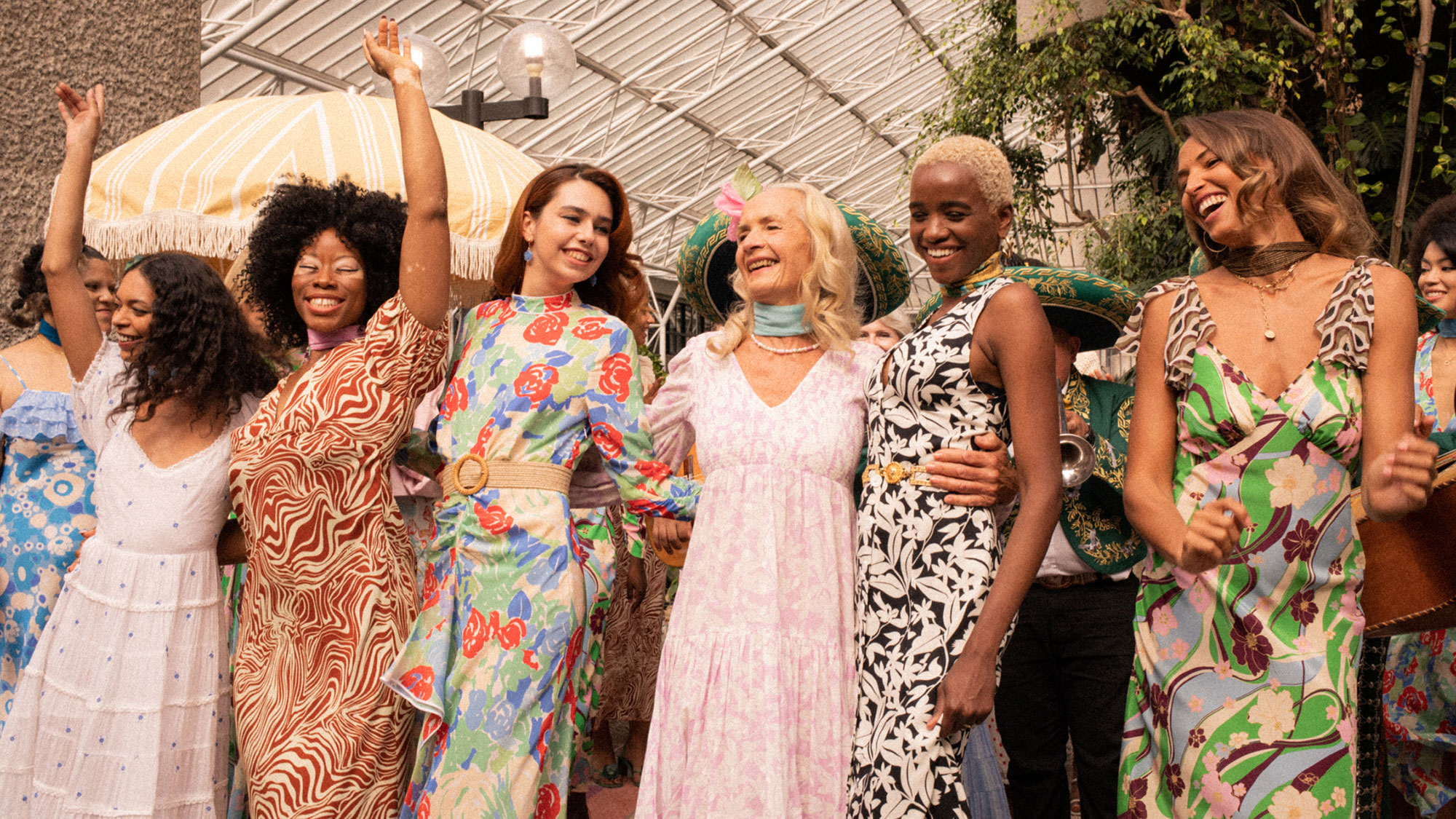
Celebrity news, beauty, fashion advice, and fascinating features, delivered straight to your inbox!
You are now subscribed
Your newsletter sign-up was successful
Henrietta Rix and Orlagh McCloskey first launched Rixo in 2015, sharing their love of vintage designs and unique prints with their customers. Fast forward a few years, and they've just previewed their spring/summer 2022 collection at London Fashion Week.
Their new collection, which will launch in March of next year, celebrates the (hopefully) return to holidays after far too long stuck indoors. It is the mood-booster we all needed. Think beautiful summer cottons and linens in both solid and print pieces, finished with crochet, colourful ric-rac and lace. There are also new embroidered collars, button down halter-neck dresses and puff sleeves, as well as classic shapes reimagined in new prints.
I sat down with Orlagh and Henrietta to chat through it all.
What was the inspiration behind the collection?
Orlagh: Everyone in the office just felt like they still needed a holiday. So we called the collection Bon Voyage. We looked at loads of old American hotel postcards, especially Miami ones from the 70s and were inspired by the colour. For the scarves, we found like this Mexican-inspired print, and it's inspired by the old souvenir scarves of different holiday destinations like Florida and Miami. In essence, it was exactly what we wanted to wear for this time next year. It's just really fun and really happy.
Henrietta: Orlagh painted a print that's got little maraca girls and the coconuts and little hula hula woman, it's all very playful.
Orlagh: I think people have probably got out of the mindset that you can only dress up if you're going somewhere because obviously in the last year and a half, we've not really had anywhere to go. They've realised how you dress does really affect your mood. Our collection features pieces that you can wear during the day but you feel really nice and confident about yourself.
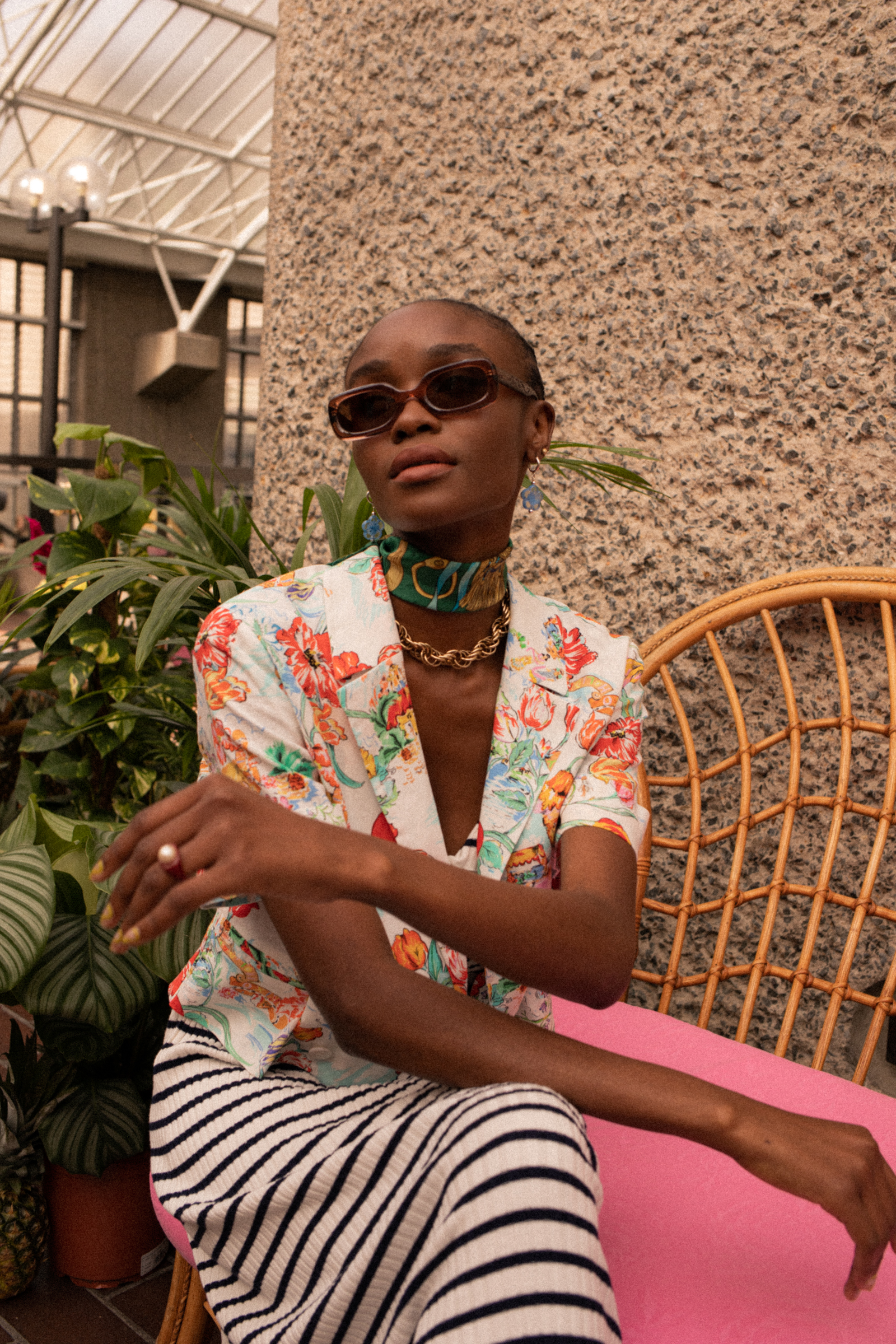
When you first launched, you were the go-to for weddings. How has that changed?
Orlagh: People will used to think you should never wear a dress during the day. I know that dresses and trainers is just such a trend because it's made people realise that you can wear things in a casual way and it's not just for a wedding. COVID has probably spurred that on even more. You can wear everything in different ways and really get the value out of your clothing. We definitely want to encourage that, because we don't really, in a sense, follow trends. You'll get more longevity out of it by styling it different ways.
Celebrity news, beauty, fashion advice, and fascinating features, delivered straight to your inbox!
How do you feel like that your collections and business a whole have changed since you first launched?
Henrietta: We always said to ourselves that we really wanted to be direct to consumer and talking directly to our customer hence opening one of our first shops within two months of launching the brand. We had our own website and then we had a a store in Covent Garden so we could meet that customer and then obviously to become global.
It became quite wholesale focused, and we had doors opened worldwide, and then COVID obviously happened and literally 150 doors closed overnight. It affected everyone, so we took stock and asked ourselves what we wanted Rixo to stand for. We thought about the product becoming a lot more lifestyle and making sure that people could wear it in different ways. We wanted to go back to our roots about being direct to consumer and focusing on our own channels so our e-commerce and then our stores as well, making sure we have that two way conversation with customers so we could learn from them.
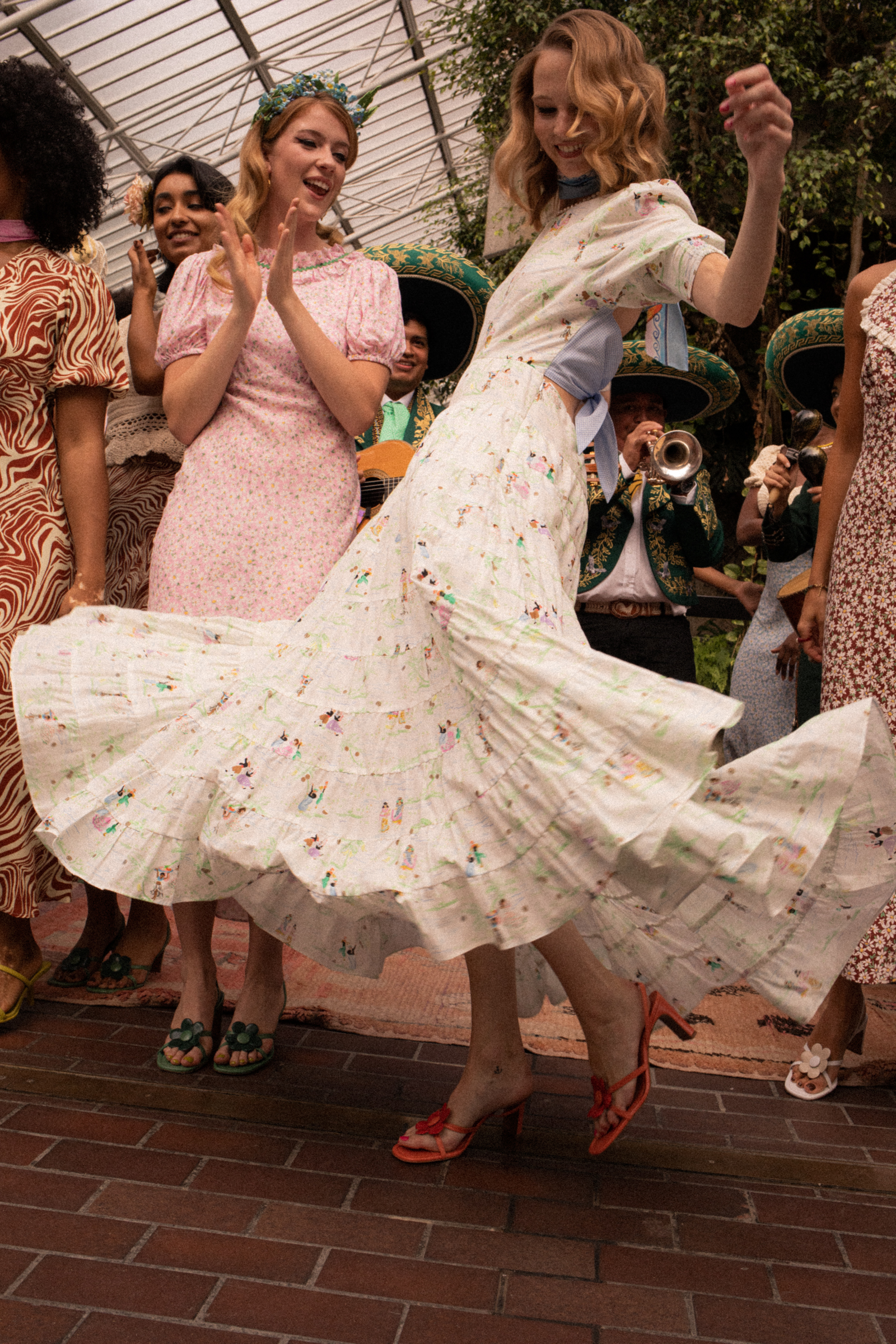
Orlagh: I think the like approach to design hasn't changed. It's more about having the confidence that we can do different variations of what we like and the customer likes. Like this pale green dress we just brought back, two years we wouldn't have thought the customers would get it because we were so print heavy, but now the customer understands Rixo, and she will absolutely love the cut of a dress and want it in different prints and colours.
I think the brand just has to mature a little bit, and you have to be known for certain cuts and certain shapes for that to actually be successful. And the same with fabrications. Like, because we were so into prints, we thought we couldn't do cottons or viscose even though that's what we wanted to wear when it was really hot. It's really nice that we feel like we can get out creatively in different ways and then actually be successful.
You've branched into shoes and handbags, do you have any other projects in the pipeline?
Orlagh: It's nice that the customer wants different things from us! Sometime in future, we'd like to do interiors as well. We've used our prints on our office sofas. They do lend themselves to interiors. But we really want to hone in on womenswear first. Our biggest priority is making sure that our customers really feel confident when wearing us.
Henrietta: In January, we're launching our sustainable denim collection. We're talking to our suppliers and developing that out and really listening to our customer, we can tell that that's what people want. We're making sure that we're thinking about everything from a sustainable angle as well and communicating that in the best manner.
Orlagh: And then we are also increasing our size range. We go up to a size 20 and we're just trying to be perfect the designs to to size 24. We want to spend the time to do it right, we want to empower people to feel really confident.
Henrietta: It's not just within size, but it's also within people's age and all different ages, where we have make sure that we're doing our best to make sure customers feel like they can put on that red dress on and feel amazing. We want to be more inclusive as we grow as a brand.
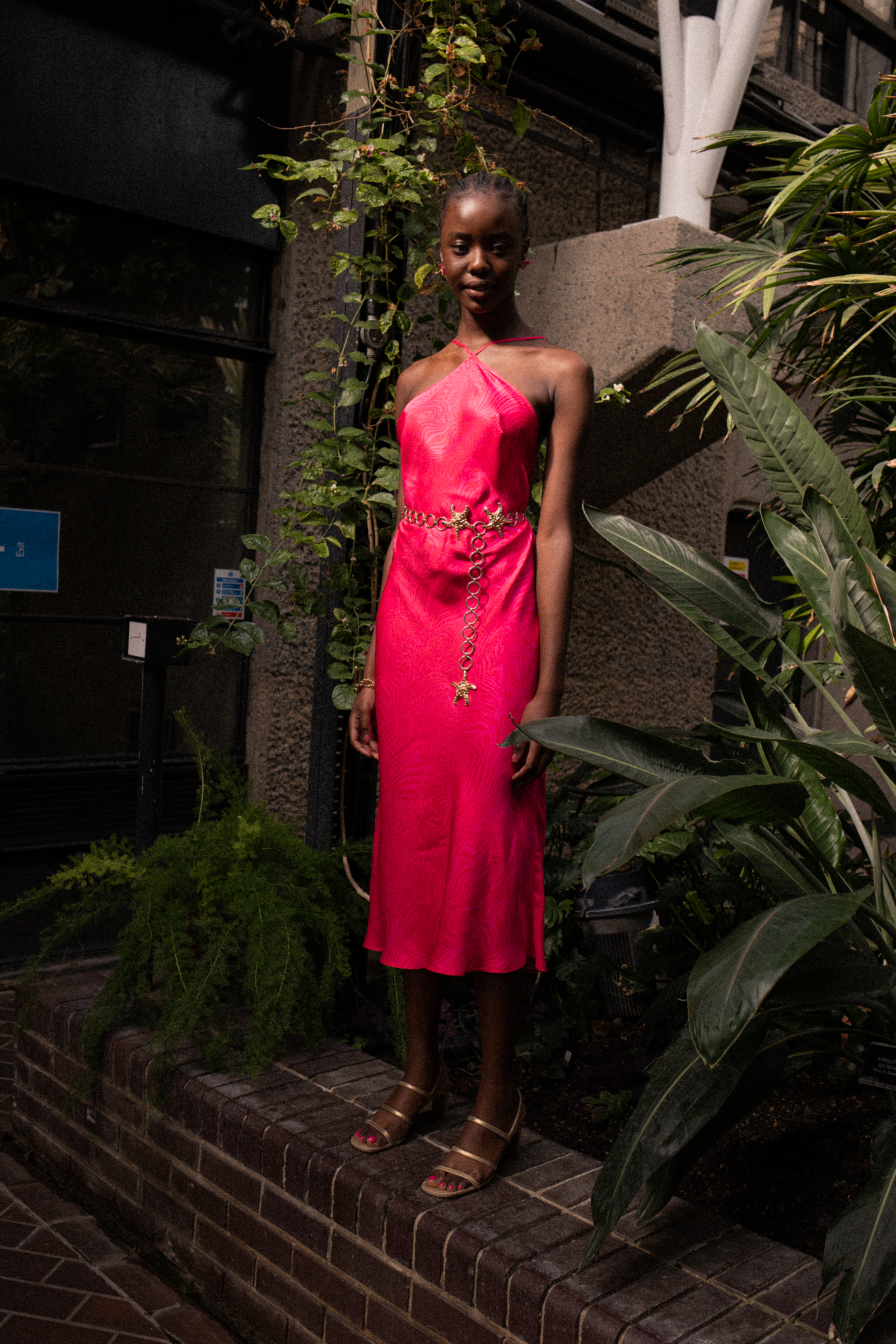
In what ways is the brand becoming more sustainable?
Henrietta: It's always been in the back of our minds, like for instance, when we choose suppliers or when we're shipping things, we don't have a massive supply base, we have a small supply base, we don't sample with loads of different factories. Some fast fashion brands will design a sample with 20 different suppliers to see which comes out cheapest.
We know there's loads that we can do to improve our processes, but I think it's as much about educating our customers and educating our head office and everyone within it. So we've got a sustainability rep nominated within within the team.
Orlagh: It can be just really small things that we're doing in the office as well, and we try not waste anything. If we use fabric for the fashion show, we will reuse that with something else, the same goes for props in our shows. It's about getting the value out of everything that we buy and use. We do still do silk, but we'll always do that with our China factory because the silk mill is pretty much in the same area that we do our production in.
It's all about getting the fabric and getting the performance in the same area that you're doing the manufacturing. So you're not flying things around the globe and just being wasteful. But we're actually doing more equal fabrics as well. So we've got equal viscoses that were done out of India, that we've never done before.
If there's things you can do with your process as well, like we've really honed in on the communication with our factory. Basically the demands that a lot of designers or brands or retailers put on suppliers, fabrics will be rejected because the colour isn't right or something, and that'll be deducted from their wages so they'll start subcontracting work to avoid getting fined if they're late. Bad communication with suppliers actually affects sustainability.
When we were in India, we'd see a huge room just full of rejected fabrics from different buyers and brands.Working closely with your supplier will mean you're more sustainable, because it's not wasteful. You're working in an effective way. So, we're not just doing it with the fabric, we're actually trying to implement it into our processes as well. We'll speak to them and see if there's a solution if something isn't right. Because if you don't do that, the factory may subcontract out your work, or they may have somebody working 24 hours a day trying to get your order finished, because you're going to give them a fine. We've always had such a good relationship with them, which is why I think we understand the supplier point of view, quite strongly. It's so important to be a team.
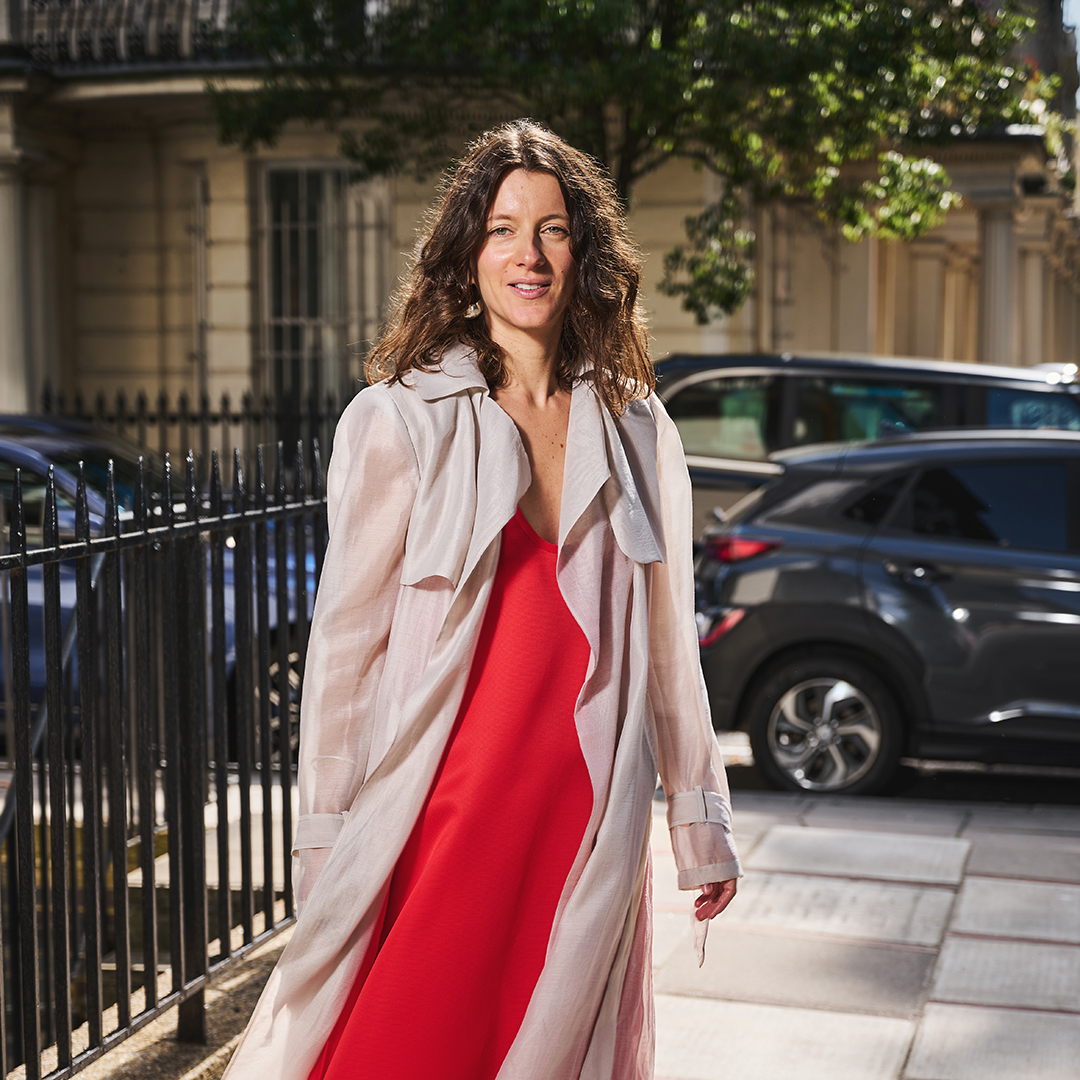
Penny Goldstone is the Contributing Fashion Editor at Marie Claire UK. She writes about catwalk trends and the latest high street and Instagram sartorial must-haves. She also helms the Women Who Win franchise.
She has worked in fashion for over 10 years, contributing to publications such as Cosmopolitan, Red, Good Housekeeping, and Stylist.